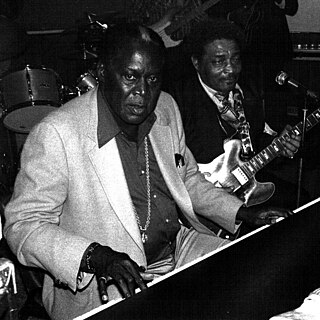
John Len Chatman, known professionally as Memphis Slim, was an American blues pianist, singer, and composer. He led a series of bands that, reflecting the popular appeal of jump blues, included saxophones, bass, drums, and piano. A song he first cut in 1947, "Every Day I Have the Blues", has become a blues standard, recorded by many other artists. He made over 500 recordings.

Robert Lockwood Jr. was an American Delta blues guitarist, who recorded for Chess Records and other Chicago labels in the 1950s and 1960s. He was the only guitarist to have learned to play directly from Robert Johnson. Robert Lockwood was one of the first professional black entertainers to appear on radio in the South, on the King Biscuit Time radio show. Lockwood is known for his longtime collaboration with Sonny Boy Williamson II and for his work in the mid-1950s with Little Walter.

Alex or Aleck Miller, known later in his career as Sonny Boy Williamson, was an American blues harmonica player, singer and songwriter. He was an early and influential blues harp stylist who recorded successfully in the 1950s and 1960s. Miller used various names, including Rice Miller and Little Boy Blue, before calling himself Sonny Boy Williamson, which was also the name of a popular Chicago blues singer and harmonica player. To distinguish the two, Miller has been referred to as Sonny Boy Williamson II.

"Bring It On Home" is a blues song written by American music arranger and songwriter Willie Dixon. Sonny Boy Williamson II recorded it in 1963, but the song was not released until 1966. Led Zeppelin adapted it in part as a homage to Williamson in 1969 and subsequently, the song has been recorded by several artists.
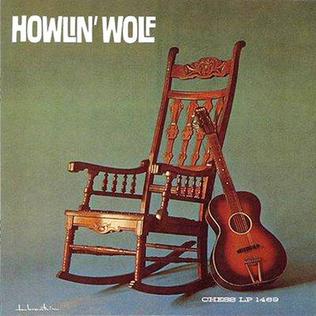
Howlin' Wolf is the second album from the Chicago blues singer/guitarist/harmonicist, Howlin' Wolf. It is a collection of twelve singles previously released by the Chess label from 1960 through 1962. Because of the illustration on its sleeve, the album is often called The Rockin' Chair Album, a nickname even added to the cover on some reissue pressings of the LP.

Blues Jam in Chicago is a studio recording by the British rock band Fleetwood Mac, originally released in two single-LP volumes by Blue Horizon in December 1969. It was the result of a recording session in early 1969 at Chess Records in Chicago with Fleetwood Mac, then a young British blues band, and a number of famous Chicago blues artists from whom they drew inspiration. The album has also been released, with slightly different track listings, under the titles Blues Jam at Chess Volumes One and Two and Fleetwood Mac in Chicago, the latter by Sire Records in 1976.

Crusade is the fourth album and third studio album by the British blues rock band John Mayall & the Bluesbreakers, released on 1 September 1967 on Decca Records. It was the follow-up to A Hard Road, also released in 1967. As with their two previous albums, Crusade was produced by Mike Vernon. The album was the first recordings of the then-18-year-old guitarist Mick Taylor.

Taj Mahal is the debut album by American guitarist and vocalist Taj Mahal. Recorded in 1967, it contains blues songs by Sleepy John Estes, Robert Johnson, and Sonny Boy Williamson II reworked in contemporary blues- and folk-rock styles. Also included is Taj Mahal's adaptation of Blind Willie McTell's "Statesboro Blues", which inspired the popular Allman Brothers Band recording.

Sonny Boy Williamson & the Yardbirds is a live album by Chicago blues veteran Sonny Boy Williamson II backed by English rock band the Yardbirds. It was recorded at the Crawdaddy Club in Richmond, Surrey on December 8, 1963. However, the performances were not released until early 1966, after a string of Top 40 hits by the Yardbirds.
"One Way Out" is a blues song that was recorded in the early 1960s by both Sonny Boy Williamson II and Elmore James. A reworking of the song by G. L. Crockett, titled "It's a Man Down Here", appeared on the Billboard record charts in 1965. In 1971, the Allman Brothers Band recorded an updated live version of the song, which was included on their popular Eat a Peach album (1972).

Lafayette Leake was an American blues and jazz pianist, organist, vocalist and composer who played for Chess Records as a session musician, and as a member of the Big Three Trio, during the formative years of Chicago blues. He played piano on many of Chuck Berry's recordings.
Joseph Leon "Jody" Williams was an American blues guitarist and singer. His singular guitar playing, marked by flamboyant string-bending, imaginative chord voicings and a distinctive tone, was influential in the Chicago blues scene of the 1950s.

His Best is a 1997 greatest hits compilation album by Sonny Boy Williamson II released by Chess and MCA Records in May as a part of The Chess 50th Anniversary Collection which released many albums titled His Best for artist such as Bo Diddley, Little Walter, and others.
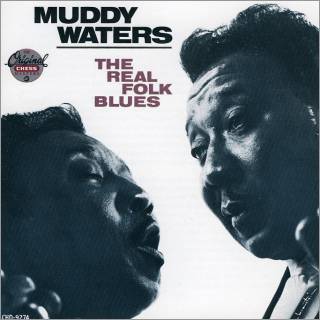
The Real Folk Blues is a 1965 compilation album of Muddy Waters recordings, released on the Chess record label in January 1965. The album was the first release of The Real Folk Blues series and has since been re-released in multiple formats. The album features some of Waters' first recordings.
"Checkin' Up on My Baby" is a song recorded by Sonny Boy Williamson II in 1960 that has become a classic of the blues. The song was not released as a single, but was included on Williamson's The Real Folk Blues album released after his death in 1965. The song has been recorded by numerous blues and other artists, making it one of Williamson's most recorded songs.
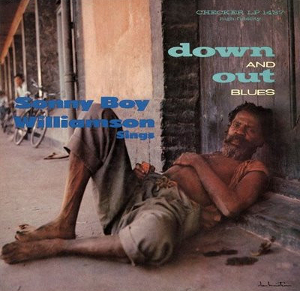
Down and Out Blues is the first LP record by American blues musician Sonny Boy Williamson. The album was released in 1959 by Checker Records.
"Early in the Morning" is a blues song that was recorded by Sonny Boy Williamson I in 1937. Identified as one of his most successful and influential tunes, it was inspired by earlier blues songs. "Early in the Morning" has been recorded by various musicians, including Junior Wells, who made it part of his repertoire.
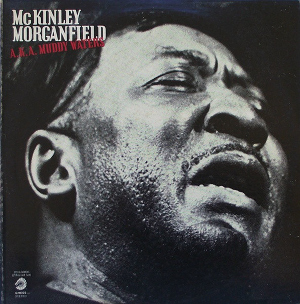
McKinley Morganfield A.K.A. Muddy Waters is a compilation album by blues musician Muddy Waters featuring tracks recorded between 1948 and 1953 released by the Chess label in 1971.
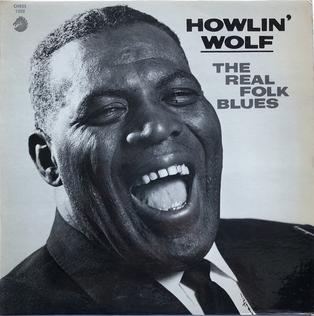
The Real Folk Blues is a compilation album by blues musician Howlin' Wolf, which was released by Chess Records in 1965. The album's songs, which were originally issued as singles, were recorded in Chicago between 1956 and 1965.
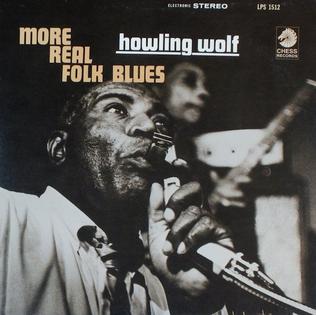
More Real Folk Blues is a compilation album by blues musician Howlin' Wolf, released by Chess Records in 1967. It includes songs that were recorded in Memphis and Chicago between 1953 and 1956.
















